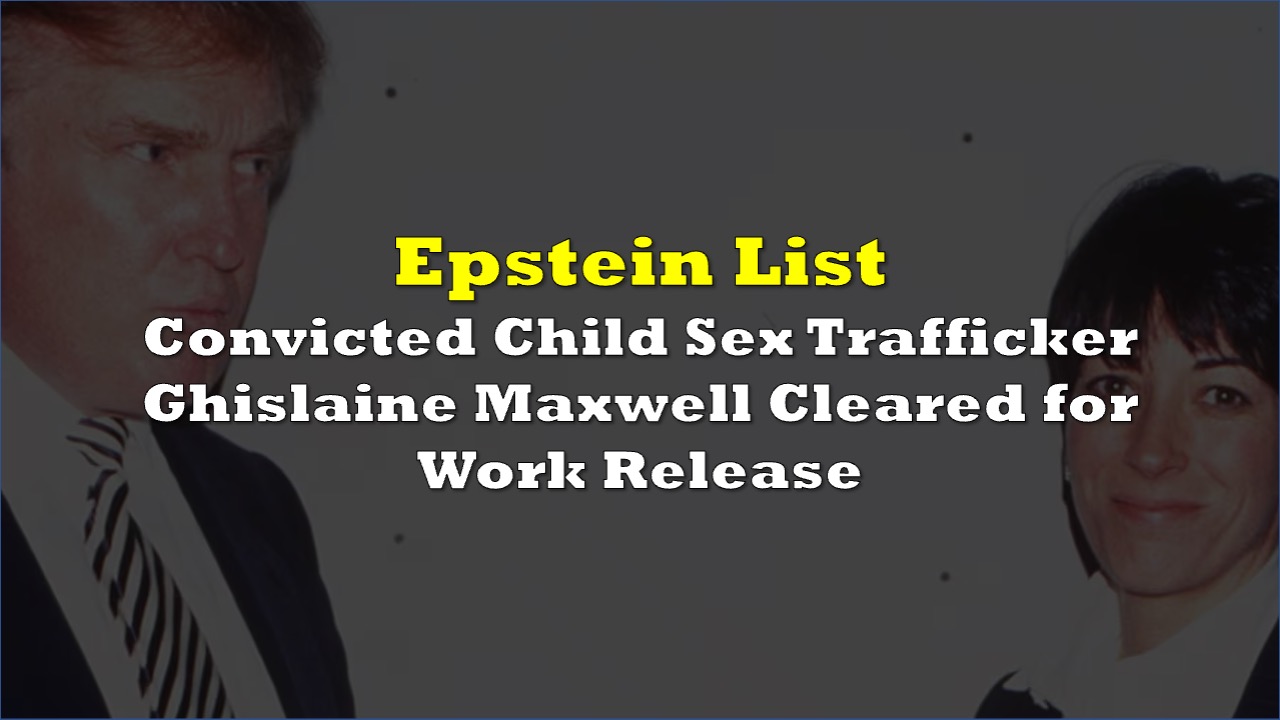Prison officials may have cleared Jeffrey Epstein associate Ghislaine Maxwell to leave prison on work release assignments — a privilege experts say authorities virtually never grant convicted sex offenders. Maxwell currently serves a 20-year federal sentence for sex trafficking minors.
Maxwell’s Bureau of Prisons classification now lists her custody status as “OUT,” indicating she can work outside the minimum-security Federal Prison Camp Bryan in Texas with minimal supervision. The development comes just weeks after the convicted child trafficker spent nine hours over two days providing information to Deputy Attorney General Todd Blanche as part of what sources describe as a cooperation agreement.
🚨 BREAKING: Ghislaine Maxwell, being grated privilege of leaving minimum security prison for “work assignments” pic.twitter.com/Uw5pVSPGzl
— Maine (@TheMaineWonk) August 12, 2025
Just two weeks before the Blanche-Maxwell meetings, the Trump administration released a memo on July 7 claiming their “exhaustive review” found no Epstein “client list” and that “no further disclosure would be appropriate or warranted.” Yet officials immediately began extensive cooperation sessions with Epstein’s convicted accomplice — suggesting the case was far from closed despite public assurances.
Read: Ghislaine Maxwell Transferred to Minimum-Security Prison After Justice Department Interview
If true, prison officials broke standard Bureau of Prisons protocol in clearing the work release. Federal policy explicitly states that inmates convicted of sexual contact with minors “will be housed in at least a Low security level institution,” making Maxwell’s placement at a minimum-security camp — let alone work release eligibility — extraordinary without special waivers.
Sex offenders rarely receive transfers to minimum-security facilities because authorities typically consider them too dangerous for public safety. Most sex offenders serve their entire sentences in higher-security facilities. Officials rarely consider sex offenders for work release programs that allow inmates to work outside prison fences with only intermittent supervision.
The sequence of events is, to say the least, interesting. Maxwell met with Deputy AG Blanche on July 24-25. Officials transferred Maxwell from Florida to the Texas minimum-security camp on August 1. Authorities confirmed her work release eligibility on August 12.
Maxwell’s attorney called Trump “the ultimate dealmaker” and said they hope the president exercises his pardon power “in a right and just way.” Trump, when reporters asked about pardoning Maxwell, notably said he was “allowed to do it” without ruling it out.
Relatives of victims responded with fury. Virginia Giuffre’s family denounced what they called preferential treatment, expressing “horror and outrage” and declaring the situation “smacks of a cover up.” They accused the administration of sending a message that “pedophiles deserve preferential treatment and their victims do not matter.”
Senate Judiciary Committee member Sheldon Whitehouse demanded answers from the Bureau of Prisons about whether Maxwell received special treatment, calling her placement at a “Club Fed” facility inappropriate given “the seriousness of the sex crimes she was found guilty of.”
Maxwell continues appealing her conviction to the Supreme Court while refusing to testify before Congress without immunity and advance access to questions.
Information for this story was found via the sources and companies mentioned. The author has no securities or affiliations related to the organizations discussed. Not a recommendation to buy or sell. Always do additional research and consult a professional before purchasing a security. The author holds no licenses.









